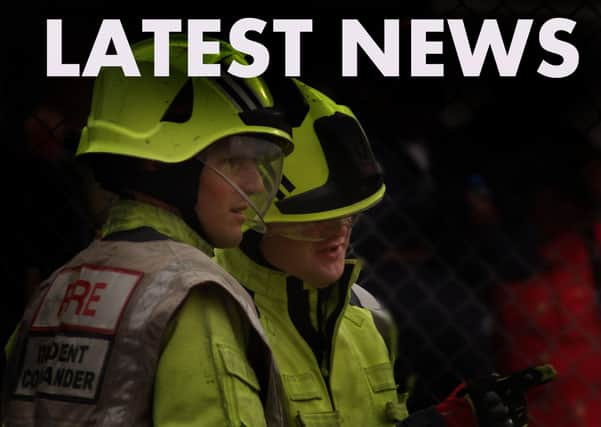Lincolnshire Fire Service and ambulance service: Covid-19 planning “stepped up”


The Fire Brigades Union (FBU) said this week that the service’s “non-emergency” work such as fire safety visits and inspections, school visits, and public meetings, should be temporarily suspended to “reduce the exposure of firefighters to COVID-19 and to protect at-risk individuals from potential contamination from firefighters”.
In response, Lincolnshire’s Chief Fire Officer Les Britzman said the force’s actions “mean we can respond and provide the best possible service”.
Advertisement
Hide AdAdvertisement
Hide Ad“The safety of our staff and their welfare remains a primary concern, as such we continue to review our approach,” he said.
“It is our duty to keep our communities safe and protect them in times of emergency, so we need to make balanced decisions.”
He said the service was following national guidance and was reviewing the situation daily.
FBU’s general secretary Matt Wrack said the current situation was under “exceptional circumstances”.
Advertisement
Hide AdAdvertisement
Hide AdThe fire service said: “We are responding to all emergency calls as usual, and put measures in place to protect staff such as increased hygiene protection. We’re still providing community advice but limiting direct contact to those most at risk of fire and other emergencies.”
All non-essential duties including charity, recruitment, school and community events, as well as fire cadets sessions, were postponed until further notice on Tuesday.
East Midlands Ambulance Service is also updating people on how it is responding to the COVID-19 virus.
Chief Executive Richard Henderson has written to patient watchdog Lincolnshire Healthwatch to assure people about the steps they are taking to keep patients and staff as safe as possible.
Advertisement
Hide AdAdvertisement
Hide AdMr Henderson said: “We are responding to an increase in demand, and working hard to digest what the latest national guidance means for our staff and patients so that we can identify immediate steps to take, whilst recognising some actions make take slightly longer as we review with NHS colleagues the specific ask.
“This issue is a huge challenge for EMAS and the NHS, and I want to assure you that we are responding by using national guidance (created from learning from other countries and expert advice), by what we find as the situation develops, and by using our approach to similar viruses eg flu and previous pandemics (see the national plan for more detail).
“I and my Executive team continue to take part in national and regional discussions and planning events to determine our next steps, and to aid our service to get what it needs. There are no new/extra people to help us deal with this, so we have set up roles and responsibilities to: focus on priorities; ensure we follow national guidance (particularly around the use of personal protective equipment and cleaning); support staff who need to self-isolate, and plan for scenarios around increased abstraction (staff unable to work).
“We have a Coronavirus Incident Room which continues to operate seven days a week, and a Strategic Commander who operates between 8am-8pm every day - we will keep reviewing this to identify if/when this needs to be increased to cover additional hours.”
Advertisement
Hide AdAdvertisement
Hide AdEMAS bosses are providing regular updates to staff and volunteers, including updated frequently asked questions and answers.
Mr Henderson went on: “Understandably staff and volunteers are anxious about current events and my briefings aim to assure them that whilst there is no history on Coronavirus to fall back on to tell us what to do, the safety of our staff and patients is a key priority and we are doing everything we can, working together with our partner agencies and key stakeholders, to protect the people we are here to care for.”
He said: “All operations staff and managers will not be able to participate in external meetings until further notice in order to protect frontline NHS Ambulance Services. EMAS colleagues in other teams will be able to engage with stakeholders using remote facilities where they are available. However, I reserve the right to change this if colleagues are redeployed to further support frontline services.
“This decision will not impact on our ability nor commitment to engage with statutory requirements aligned to the Civil Contingencies Act 2004, eg participation in Local Resilience Forums. Given our regional footprint it may be that our attendance to certain meetings; including strategic level meetings, will be via teleconference facilities.”